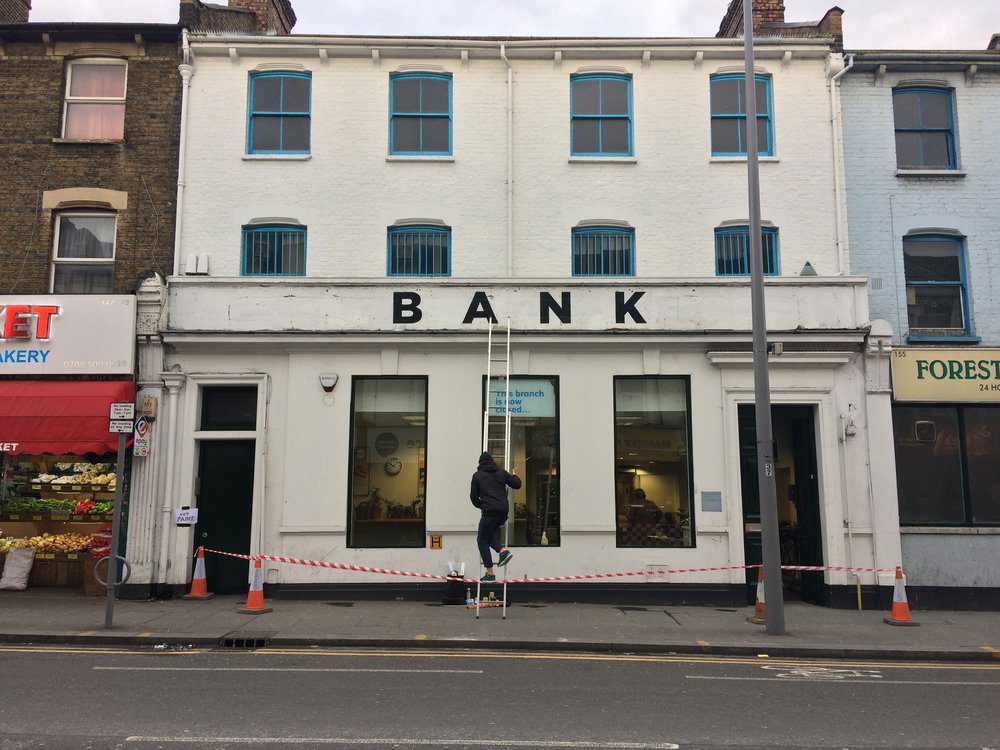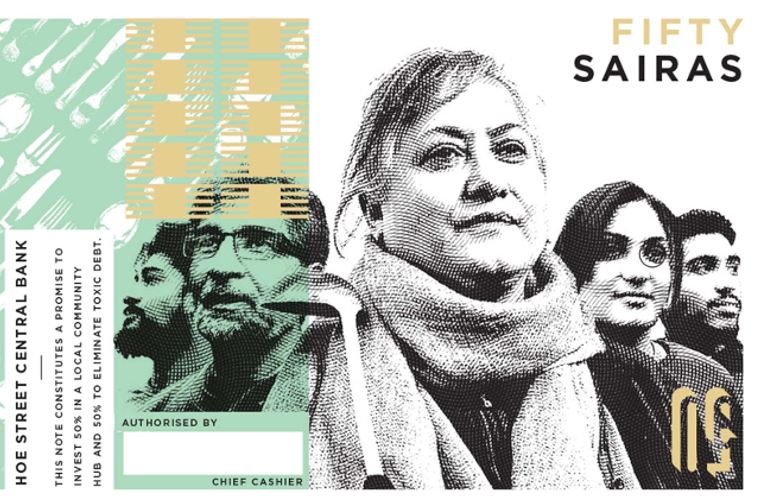When I was recently at the #CTRLshift conference in Wigan, one project that many people were talking about was Hilary Powell and Dan Edelstyn’s ‘The Bank Job’, currently underway in a former bank in Walthamstow. It had just been featured in The Guardian under the headline ‘The rebel bank, printing its own notes and buying back people’s debts’, and was generating a real buzz.
I was instantly smitten. It looked like a project that brought together many of the things I love: local currencies, people actually making things, community, a playful approach to a serious subject, creating a space the invites the imagination in, and beautiful design. All it needed was a small craft brewery on the side, and I’d be moving in! Looking into it more, it turned out that Dan and Hilary are working together on a feature film called ‘Bank Job’, and that the Bank is a part of that.
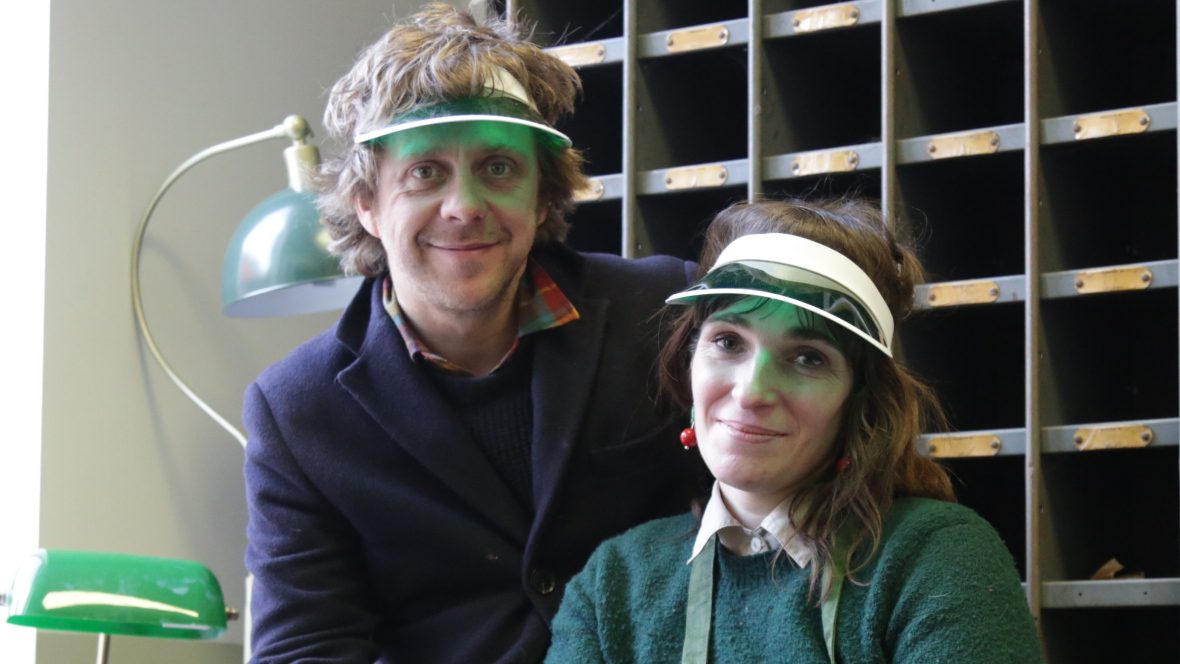
Hilary is an artist, Dan is a filmmaker. Dan summed up what Bank Job is about very succinctly:
“The idea of the Bank is that rather than getting people into debt, it buys up their debts, and abolishes them. We’re printing our own money in there, and the money that we make from selling the money, goes into abolishing debt”.
It also turned out that they were on holiday, with their children, close to my house, the perfect opportunity to have a chat and find out more. So one Saturday morning they called over. Over a cup of tea, I started by asking them what was the genesis of the idea? Where did it come from?
[Given that the interview was recorded in my house, on a Saturday morning, you will also hear my dog barking, teenagers moving around, Dan and Hilary’s kids coming in… all part of the rich texture of life!]
Dan: A friend of mine told me about this group who had bought up lots of debt in New York, I think it was medical and student debt, and then abolished it. My friend wondered if it could be done in Britain. This was a few years back. I had no knowledge of economics or understanding of debt beyond that kneejerk reaction that everyone has when it comes to debt and money, which is that you should pay your debts, and that kind of moral precept is the cornerstone of all morality. You know, paying your debts, because what kind of a scoundrel absconds without paying their bill?
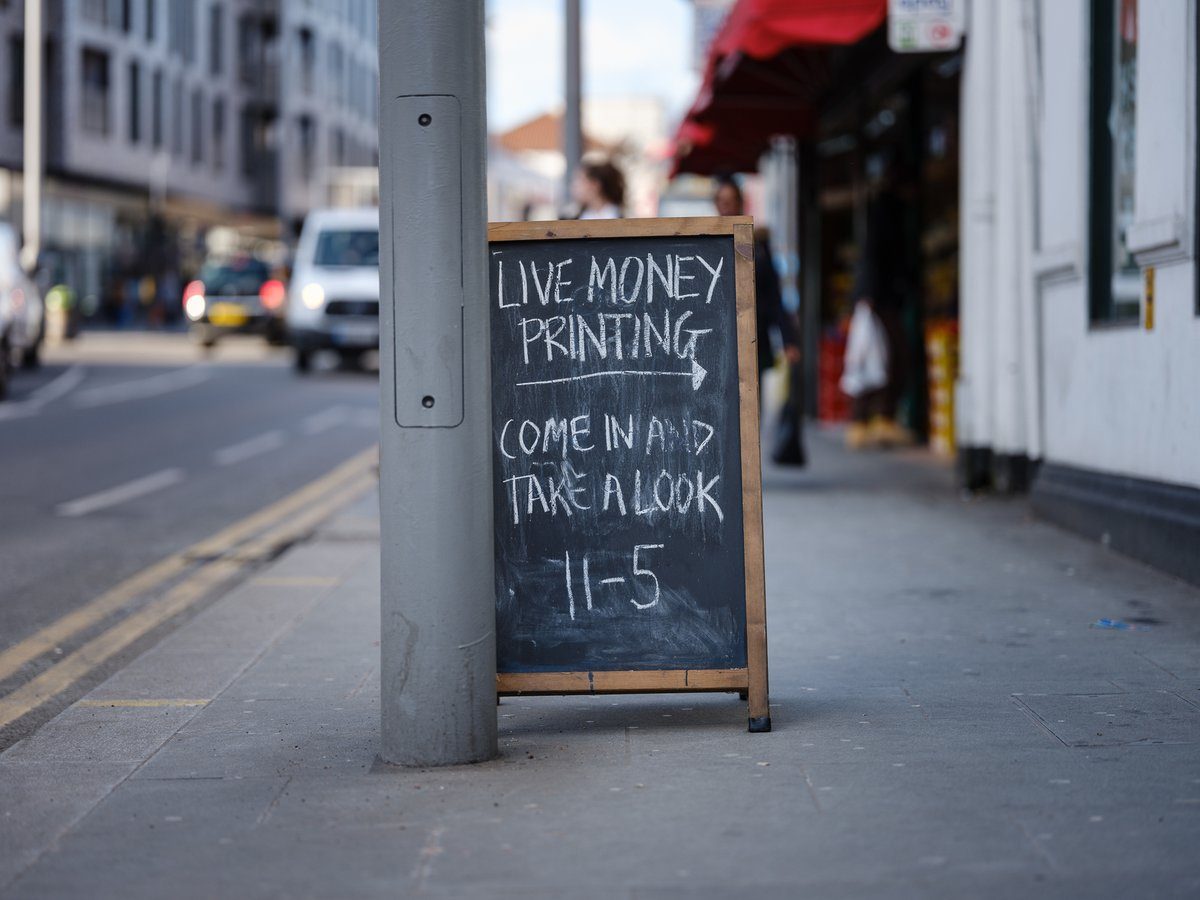
That was my starting point. I was really interested in the group. I liked the idea that they seemed to be slightly outlaw-ish, so I thought they might make a good film. I wondered if I could go out and meet them. I was really interested in what they’d done and started reading around the subject. I soon bumped into David Graeber’s, ‘The 5,000 years of Debt’, as well as Andrew Ross’s book, ‘Creditocracy’.
The whole literature around it was quite altering, in terms of how you look at the world, and how you look at the relationships between people in our society. It opened my mind to a whole different way of analysing social relations and economic relations I think. By proxy, it probably changed the way you saw it too, because I was just banging on about it for so long, wasn’t I?
Hilary: Yeah, I picked up all the same books by the sound of it. In the Bank we started a knowledge bank too with all of these readings, so people could delve deeper into it if they were more interested. Dan met them, but it wasn’t that easy to just think, “we’ll replicate what they did over there”, because they were buying up medical debt, and that doesn’t exist over here.
But also the way of doing it, because just going in and buying up debt, like if Dan was going to do it, “Oh, let’s buy up debt, or buy it on a credit card”, it didn’t really make sense. It was only when you read more, and looked into money creation, which is so interlinked with debt, and banking regulation and changes to the banking system, that the Bank idea started to form. And for ages the film was called Debtonator. That played with that superhero narrative. I don’t know.
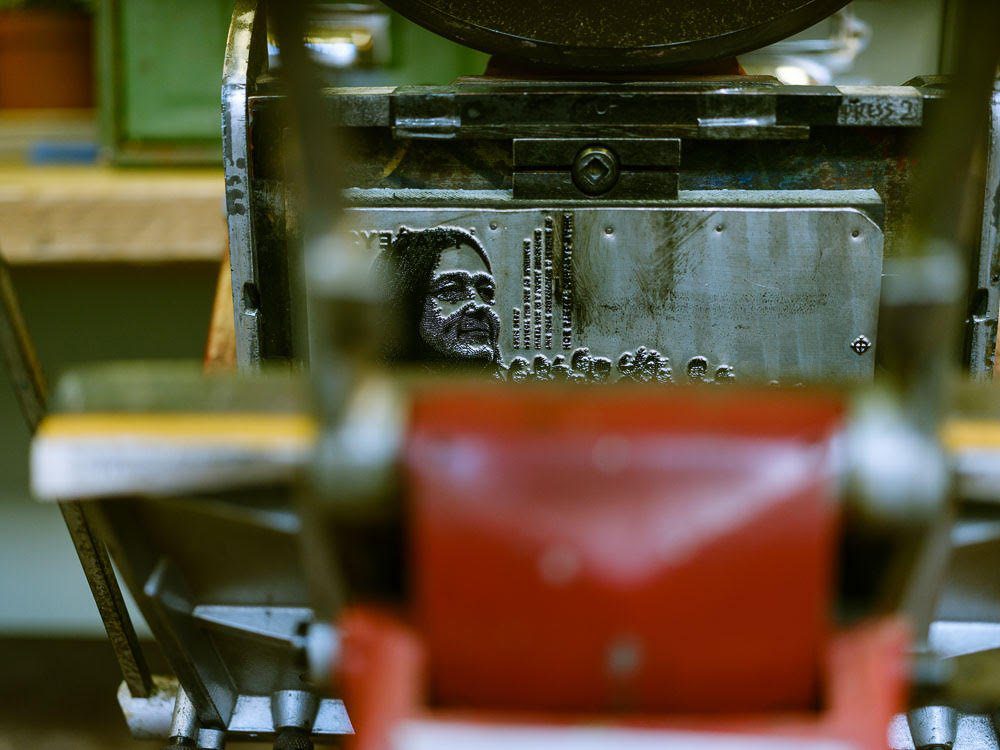
Dan: The idea that you can be a superhero, trying to rid the world of debt – not only is it absurd, it’s not actually going to work. There’s not going to be a climax where suddenly the world is fine.
You know that you’re fighting a battle you can’t win with Debtonator. But the other problem with it was actually that this was a deeper problem about the structure of narrative film making, which is the hero, and the anti-hero, and all of that stuff. Where actually we’re talking about an issue that’s affecting communities across the Western world, probably across the entire world, and the only way we’ll solve it is as a community as well. That became a bit of a problem in terms of how do you structure that? Because in terms of film making it’s quite nice to have hero characters undergoing emotional journeys of one kind and another against incredible odds. And, in fact, we have kept that.
But we wanted to nonetheless create a community around the problem and try and tell the stories of other people in Walthamstow. We wanted Walthamstow to become a microcosm for just one small community, and how the issues of economics are affecting people in that Borough, but how that can be extrapolated across Britain.
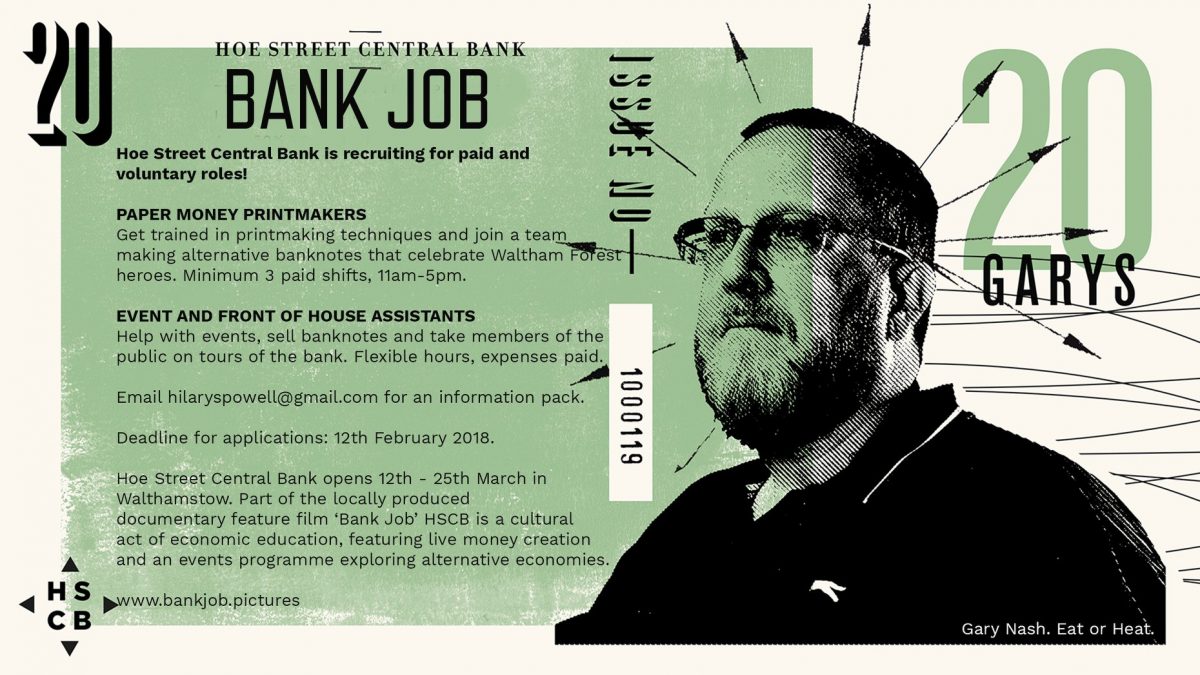
How do you identify the debt of an area? How did you isolate or identify the repayable debt of Walthamstow as a place, or is that what you did? That’s what I understood?
Dan: Well we haven’t bought that debt up yet, but it comes out of lots of research about secondary debt. So when we first spoke to debt buyers, because that’s who you have to collaborate with, the first set of debt buyers were in America. They were people who were connected to Strike Debt. They put me in touch with them.
It was just a couple of long-term people who’d worked in that industry of debt buying and they realised with Occupy that there was a real problem, and they wanted to get to know it. One of the big problems that a lot of activists fall into, and we all go through these processes, is a kind of black and white reductive view of morality where some people are good and some people are bad. But these guys really wanted to try and make a difference in their way.
At that point, they put me in touch with a British debt buyer, to try and get the ball rolling to buy up debt. But at that point, it looked as if you couldn’t locate debt via areas. You could just buy up generic types of debt. But it wasn’t until much later down the line, continuing these conversations with debt buyers, that I found a debt buyer who was able to interrogate – because it kind of comes down to excel spreadsheets, weirdly. So how you interrogate these spreadsheets, to buy up stuff via the postcode, is the key to it. So that’s the mechanism.
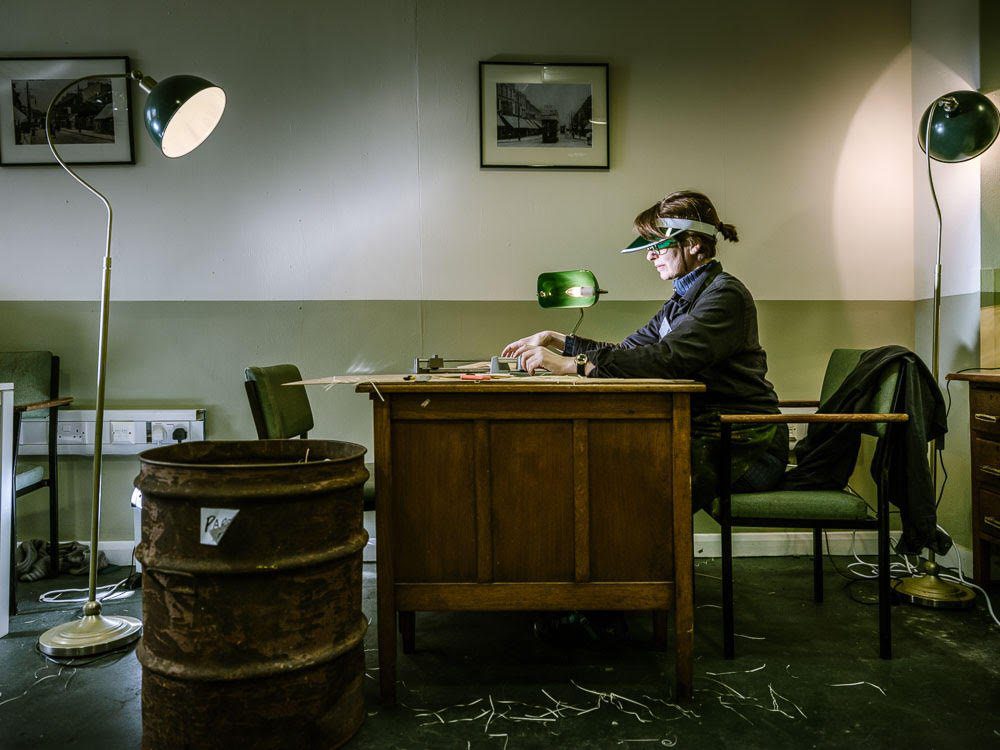

So it’s possible to do that for anywhere?
Dan: Should be.
What kind of debt is it? Because it’s not medical debt like in the US. This is credit card debt, or parking fines?
Hilary: Payday particularly. We’re targeting E17 payday debt.
Dan: Debt is such a moralised issue. It’s quite easy to make the moral case for buying up medical and student debt in America. Over here you can’t buy up student debt on a small scale. You have to have a huge kind of thing. Whereas what you can buy, is you can buy credit card debt, or you can buy car debt, or whatever. Or you can buy payday debt. And in a way payday debt is quite nice because clearly that’s debt where people have been preying on the most vulnerable in the community.
Hilary: We focused on payday and in Walthamstow Stella Creasy MP’s been taking the fight to payday loans in that Borough. We’ve had lots of arguments with people saying, “Why would you want to do that? These people are…” You know, that typical narrative. “These people are just greedy and getting into…” But the argument of the whole film is it’s more a symbolic action as well, although you can see how it could grow and become something.
But the secondary debt markets aren’t going to disappear, and payday lending isn’t by that, but it raises awareness of the absurd corruption of the whole system, and looks at the bigger picture.
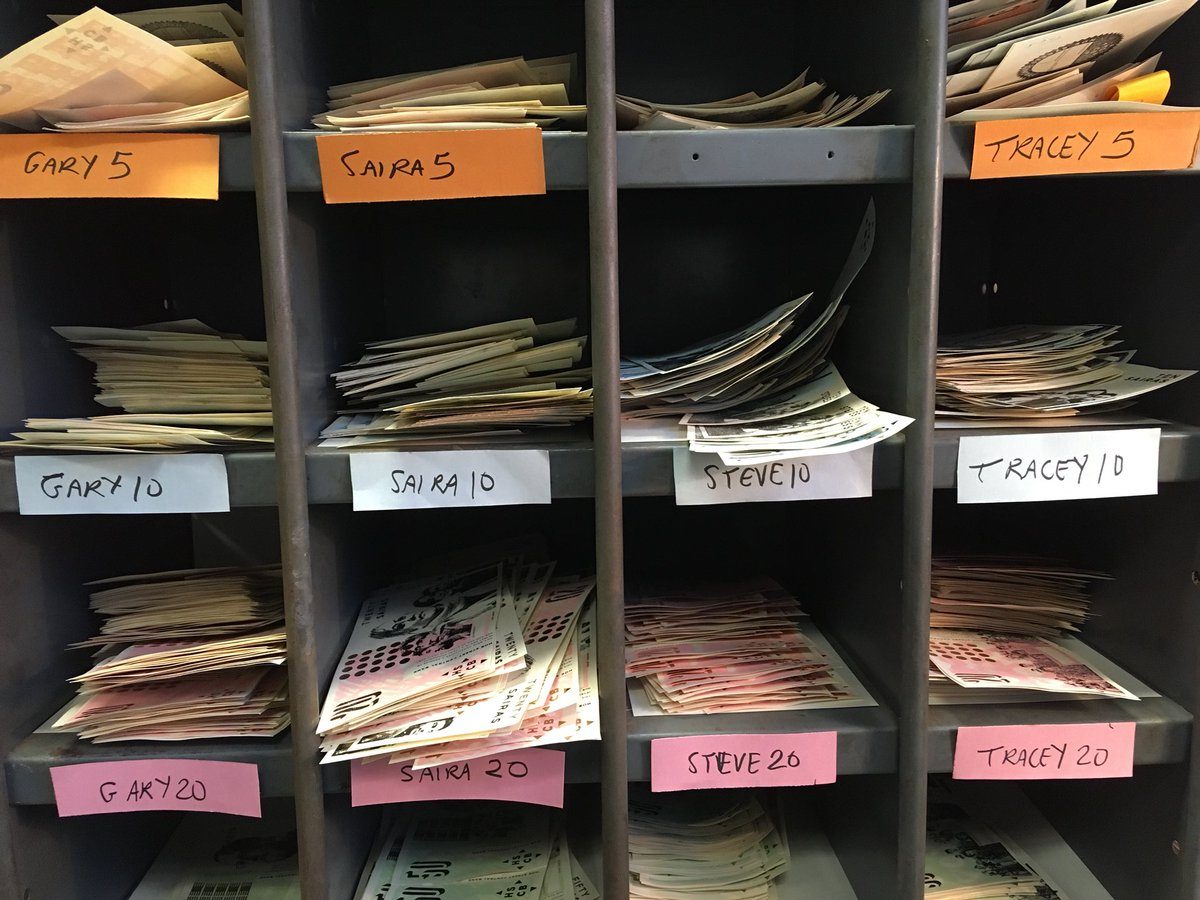
When you say ‘secondary debt’, so it’s debt that has then been sold on to a company that accumulates a larger mass of debt, and are increasingly more unpleasant than the company who you initially took it out from?
Hilary: Yeah. So if say you’d borrowed £1000, and then you haven’t paid it but it’s been sold on the secondary debt market, someone could have bought your debt for less than £100, but they’ll still be chasing you for £1000 plus interest with those kind of letters.
I’ve had that on a small scale with student loans. It gets sold on to Erudio or something, and then you get these threatening letters. Only by calling people like StepChange, those debt things, then you realise you do have powers to pay a pound a month and keep them off your back. So there is that level of exposing the way that works helps people have a different conversation with their debt collectors.
But on a bigger level it’s questioning the whole economic structure that’s forcing people to go into debt. It’s wrapped around basic services, which is the argument in that Creditocracy book, which is increasingly happening here. And through the whole project, challenging the austerity myths of living within your means, and the public purse is like the household budget.
Dan: People have suggested that they like to replicate the model of opening up a bank to produce money and all of that. But I agree with you Hilary that it is very difficult really to scale it up and think that that’s going to help solve the problem because the problem is a structural problem in the way that banks work.
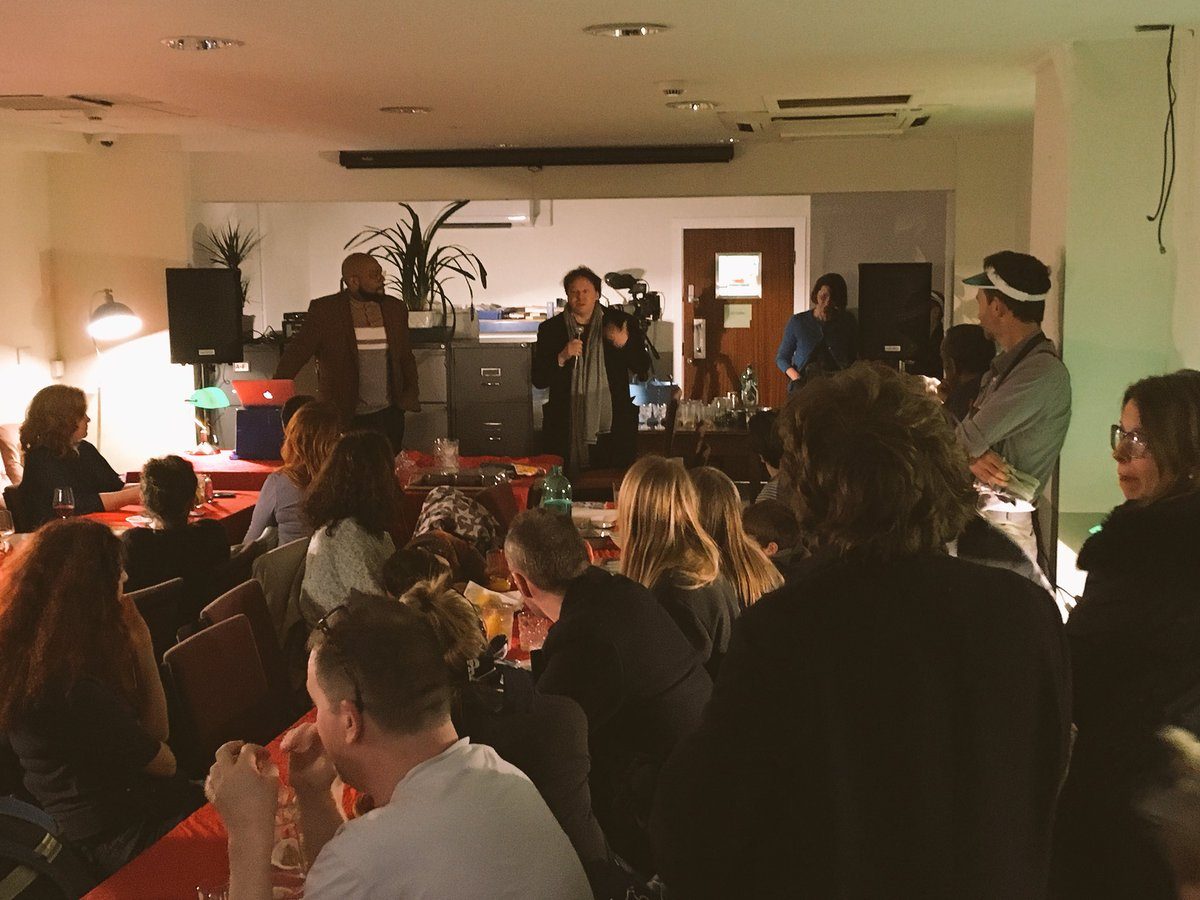
Creating an art currency will not solve the structural problems. It’s much more about putting the lens onto how banks create money now and how that’s basically systematically creating poverty, actually. It’s producing poverty. A small sector of the people end up with all the money and the other people end up with all of the debt, because it’s producing so much debt. That’s really the heart of what we’re trying to do.
Hilary: The idea of a branch or a bank like this in every town isn’t powerless, because if it brings communities together around opening up the debate, or different ways of doing things, then that has a power to build a movement.
Dan: It has a symbolic power. I clearly believe in the narrative opening the conversation. That’s what we’re doing, now. The more amplified that conversation can be, the better. But ultimately to change things on a systemic level, would be the goal, right?
Hilary: Yeah, but that could come through this.
Dan: From education.
So if somebody were to walk in off the street in Walthamstow into the Bank, on Monday, what would they see? What have you created there?
Hilary: They would see the money that’s already made. In those two weeks, that was when there was the most activity. We’re now thinking, “How do we carry that on?” Because we had two weeks and we employed on living wage a team of local people from all different backgrounds. Some were artists, printmakers. Others had no experience. We were literally making the money.
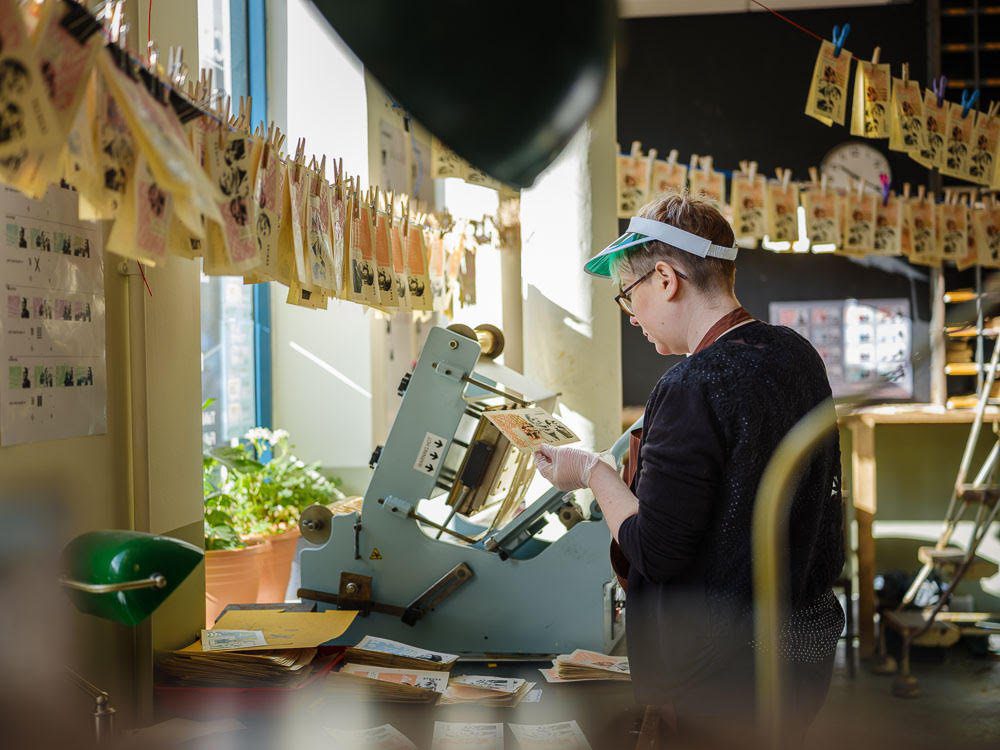
That was the theatre of money creation with our outfits and busy letter pressing and screen printing. At this stage, that two week intensive production has stopped. Everything’s still there, and we’re there, and the money’s there, and we’re there as a shop for exchange. But we’re trying to think how we continue…
We can’t continue on that intensity every day, but we’re there. We had eight events that looked at things from other money, like other money creation, to cryptocurrencies, to economic education. That was intense. Every other night these events that draw other audiences in as well as the day passing trade of the High Street, because it’s right on the big road. We’ll carry on events, and continue it as a hub of economic conversation, plotting in more events.
Dan: And also cultural production. Because I think culture is a battleground in a way. It’s nice to think of how we can produce culture which challenges orthodox ideas surrounding economics. Because that’s what we’re fighting against really here. It’s about orthodox economics, really. But we’re fighting it with art. You know. That’s quite nice.
We find that on the left, and on the right as well, there are all these different ideas around what art should be. And as artists, we mix between us – if you can capture people’s imagination then you can get the story across, and the analysis across, which is really important. But if it’s just on white papers, which often these things live on these white papers, then really they only exist between a group of people who already agree with one another, you know? What we’re bringing to the party is not new analysis, necessarily, but it’s just getting a hearing for the analysis via the channel of artistic production. Or cultural production…
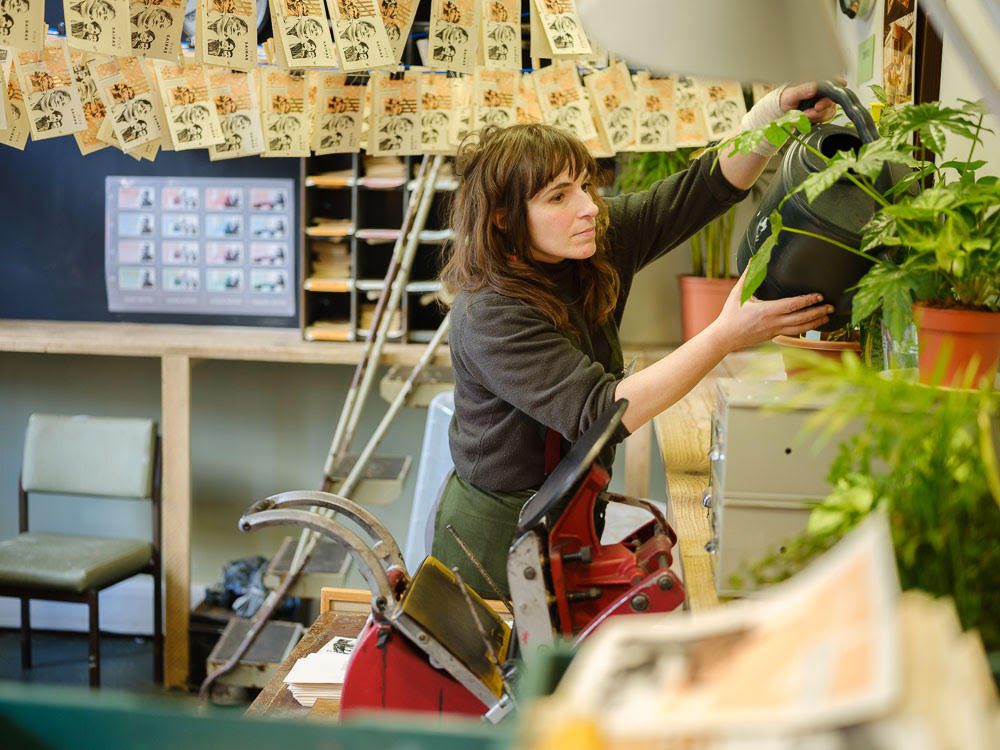
Hilary: I suppose it’s getting people involved directly. With the bank notes, we’ve got four different local causes on the notes. In a way we started that because it seemed easier for people to give to charitable giving, rather than debt abolition. It was an easier thing for people to get their head around, although actually, it doesn’t seem to be hard for people to think, “Yes, I want to abolish this local debt” and I think making it local like that makes it more real.
These causes are Gary, he runs the local food bank, and Saira and her family run a homeless kitchen called Plates for You. Tracey’s our children’s local primary school teacher suffering a lot from cuts. They’re a small single form entry and they’ve had Ofsted issues. And Steve and Josh run The Soul Project. Recently while we’ve been away there’s been more killings in Walthamstow, and they set this whole youth project up to keep people out of trouble and out of gangs and off the street, and their building is being sold for luxury flats.
Vital activities in the community, and the whole system is against them. They all say they’re doing this ‘Bank Job’. So we’re playing with that, like community heist and the style of the film goes into that. They’re doing this bank job because if the system was fair there wouldn’t be a need for a food bank. It’s struggling to keep up with the demand in Walthamstow, and the homeless kitchen wouldn’t need to exist, and the school wouldn’t need to fundraise externally just to have its creative subjects.
Dan: It’s been interesting because also when we first started trying to get people recruited, to be into it, everyone looked at us with a little bit of doubt. Well, quite a lot of doubt! In fact, no, there’s been huge doubt right through this, because debt itself is a taboo subject anyway. So getting people to appear on bank notes which are going to effectively abolish, via an explosion on the marshes, this debt… You know, we’re putting our heads above the parapet, Hilary and I, but we’re also asking them to as well, in a way. You know. And we’re asking them to become symbols of resistance. Right? They kind of are.
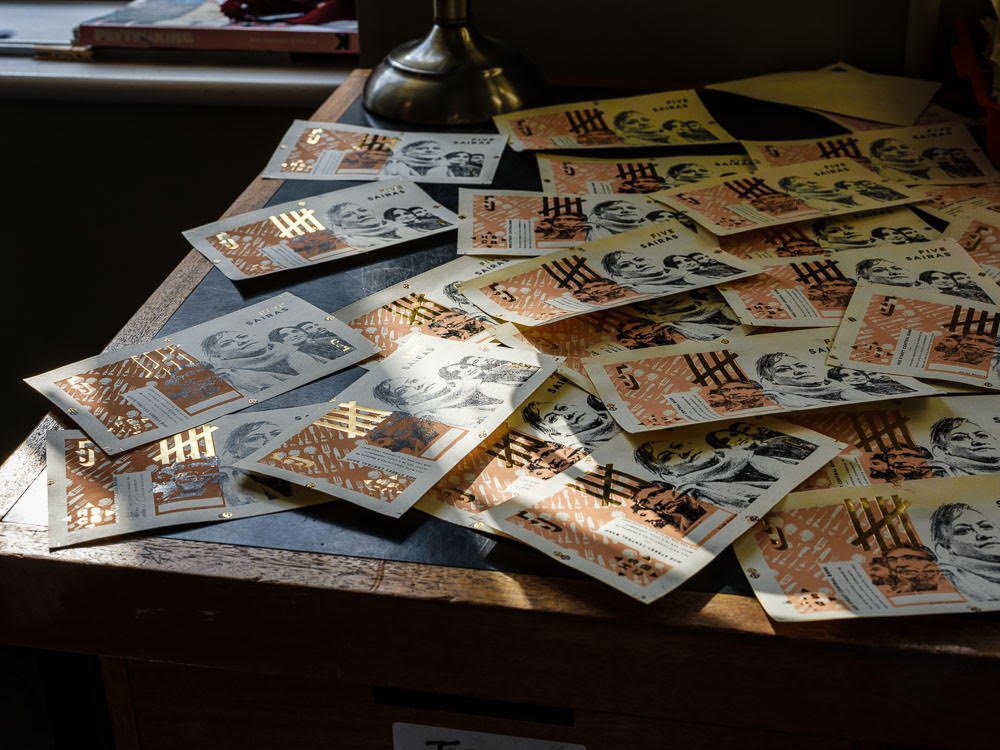
What’s the process of designing and then printing the notes?
Hilary: We did a prototype with Gary. He was our first organisation that came on board early on, the food bank. we did a first, so that was me down the shed, with the same techniques but very more just art.
Dan: The first thing was to photograph them. We wanted to make them look quite heroic. We wanted to send up that visual tradition of people looking epically out into the middle distance, as if they’re surveying their kingdom of some kind. The purpose was going to be subversive, but we wanted to mess about with that imagery. So we did a photographic portrait. And then you cut it… I don’t know how you did your next technique? Your next stage?
Hilary: It’s the same techniques. It was just a prototype really. Screen print, then I did etching, and wanted to do foil, but didn’t have a foil blocking machine. Over the next phase we worked with a local designer. He’s another parent at the school that we only spoke to because we were making the school garden together and I found out he was a graphic designer. That was a leap of faith because we weren’t quite sure whether he’d be good, but he’s great.
All of those kinds of ideas then have got refined. The screen print element was done. The photographs that this time Dan and another local photographer – we know him from our dog walks – Peter Searle did some of the photographs. They were laid out, and then etching … that’s a really work intensive process, and I had to scale that up to produce £50,000 worth, which is 13,700 notes.
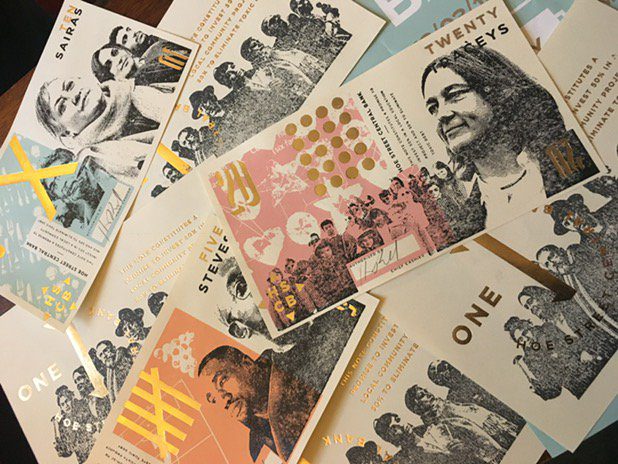
Luckily another neighbour, who’s got an artist studio on our street of terraced houses, he has a letter press studio, so he said, “Oh you do this by this letter press technique”. And the machines came from another local really amazing letter press studio, and the screen printing was done in another artist screen print place to expose the screens.
We had the screens on site, already made for the colours. And then I had to buy the foil blocker, which is a big machine that heats the foil and presses it down. So it was real collaboration because Phil worked on the design collaboratively, and then on site another artist was training the printmakers and troubleshooting with all the issues that went wrong in the process with the machines. But yeah, it was taking a while coming together.
If somebody wanted to do something like this, what would they need to ?
Dan: Well, we got some funding, didn’t we, from the local council. Like an arts development award.
Hilary: Yeah, Waltham Forest Council Arts Development award. Lipman-Miliband Foundation for Socialist Education a bit. Raymond Williams Foundation put in a bit – well actually they haven’t given any money yet. UCL Urban Laboratory. We were trying to gather everything together around basically the two weeks of production. But then we didn’t get a massive arts council grant – we had a massive deficit.
Dan: It wasn’t exactly massive, the Arts Council, but yeah, the whole thing ran at a big deficit. So that was ironic as well because while we were literally printing money in the Bank, we were basically going into debt! But Hilary always says don’t talk about that. But I mean as you’ve asked the question, it was expensive to do.
And we’re not making any of the money… Out of those notes, half of it goes to the debt abolition, half of it goes to the local charities. So effectively the cost of production has been absorbed by us. That’s something to be very careful of because that basically means that it’s not profits going in, it’s the entire money. It has been a bit of a struggle really hasn’t it?
Hilary: Yeah, but now we’re in a position where we can now make that back again. We took the risk with that, but also we’ve learnt a lot through that production. We paid everyone … I’m sure lots of people probably would have volunteered to work on the print production line but we felt like we wanted to offer this employment as living wage. But obviously it was good to be paying other people.
Dan: We can’t be doing something which is preaching economic ideas and also at the same time be exploiting people in any way. That’s why it was really important that it was London Living Wage for everyone involved. Even if it was coming just directly from our own savings!
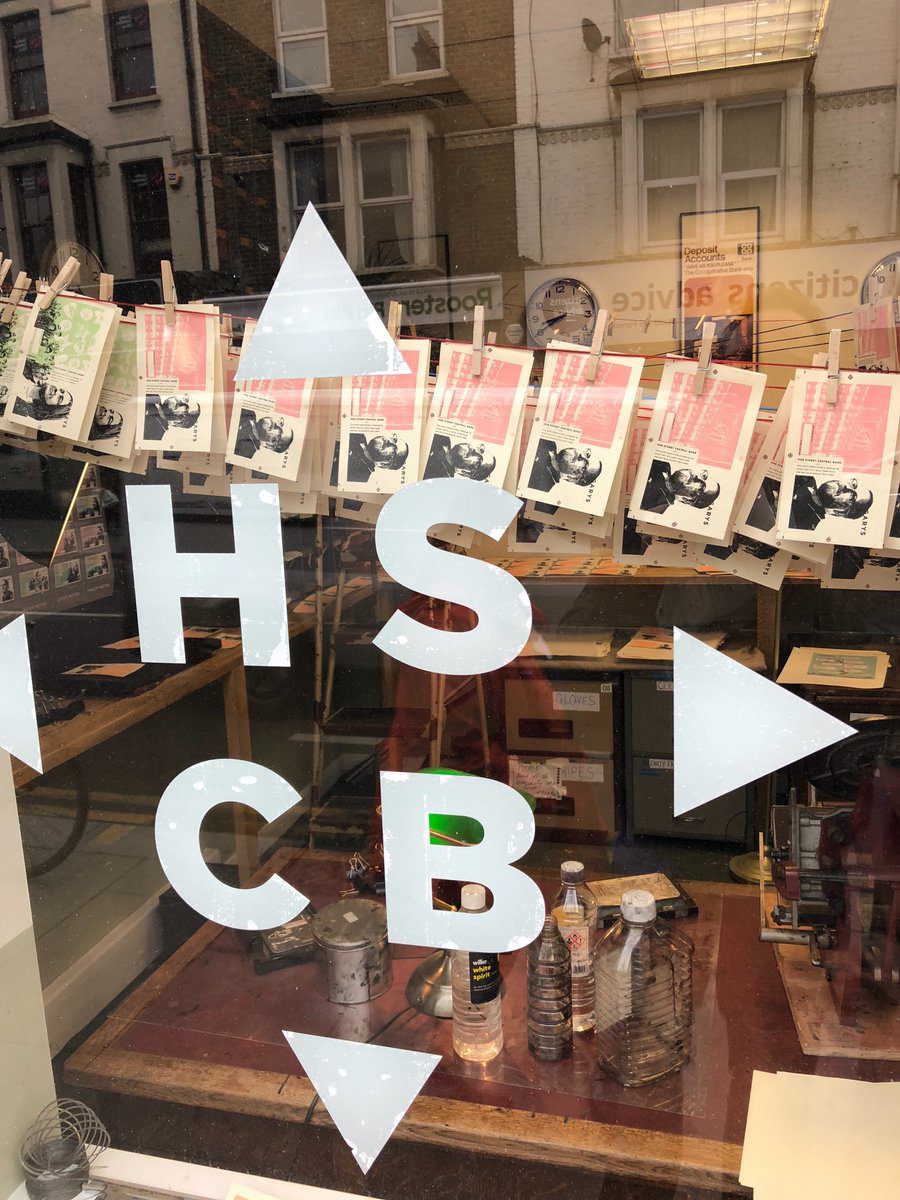
Do you have a sense of, if somebody wanted to repeat this, what they would need to be looking at, realistically, to do it? To get them started?
Hilary: This is the kind of evaluation that we still haven’t quite done whilst on our holiday.
Dan: You’ve got everything from the rental of the Bank, which we were lucky to get because there’s not that many empty banks, and that just came along at the right time. We’ve been renting that from IndyCube.
Hilary: They’ve been really supportive, this co-working organisation based in Wales. They’ve been championing it a bit so we’ve been negotiating with them all the time. We’re anchor tenants of that building. We’d organised for these side rooms but gradually did up the whole space and went out into the window area, and changed the window stickers. Hopefully they keep seeing it as a positive relationship.
Dan: We haven’t paid ourselves anything either. So we’ve been exploiting ourselves a bit. We should maybe create a union for ourselves on this.
Go on strike.
Dan: Yeah, if we did go on strike – which Hilary keeps threatening to do as well – we’d have to pay ourselves. So realistically it needs to have some proper funding and you’ve got to ask yourself the question, “Well who would fund something like this?”
Hilary: I think people would. It’s just they haven’t heard of it.
Dan: Yeah, I know, but on a national level, if other people want to do it as well. The Young Foundation asked us to write a book addressing exactly the questions you’re asking, to create a blueprint.
The film itself obviously is a way of sharing this because we’ve been filming everything. But alongside the film’s release, which could then travel, here and then everywhere to show it, but also have this toolkit for a branch bank in every town. So there are some big foundations that do put money into this type of thing, I think.
Hilary: Yeah, there are, we just haven’t been very clever.
Dan: Some of them are in America. But realistically, it’s going to need probably £30,000 – £50,000 to do one properly, if everyone gets paid and you’re not losing money yourself.
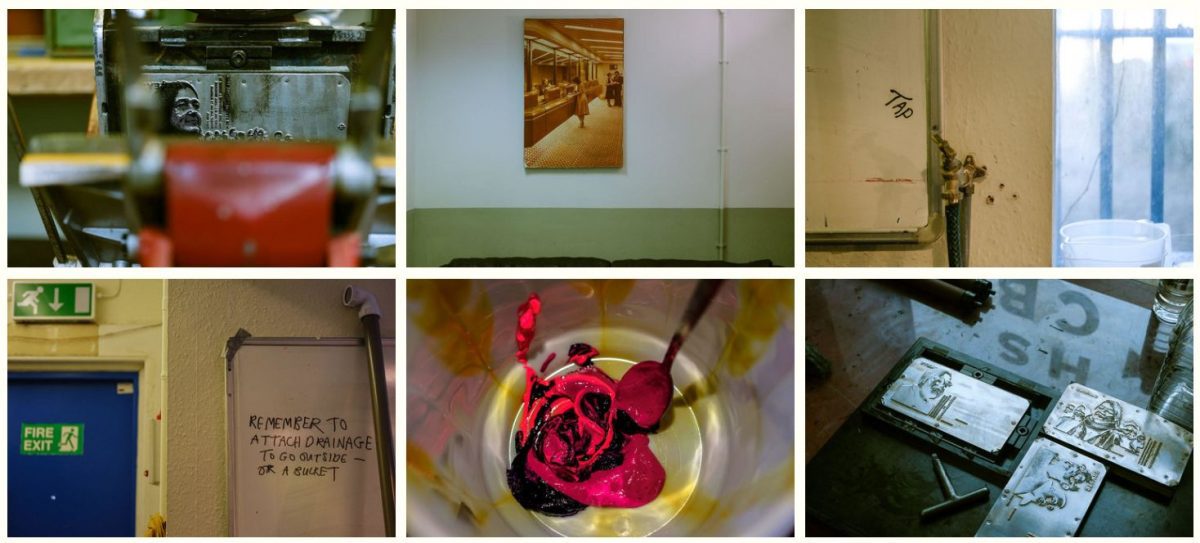
How it’s going with selling the notes?
Hilary: Good. There’s been more coming through this week. We’re over £15,000 but obviously we’ve got to get to £50,000, and that surge when the Guardian article came out, it was like… Dan gets the notifications online, he’s like, “There’s a sale every minute. Oh my god!” And then people buying…
Dan: It’s really intense.
Hilary: And non-stop queues in the bank, so it was just like, “Wow” but obviously now that little intense spurt, we need another one like that.
Dan: What we need is something else to happen that draws press attention towards us. The only way we got that Guardian article was because the journalist literally lived in our area and she was just walking past it, and she popped in. We were pitching to various different people at the Guardian, and no-one was taking it at all seriously. So it was just pure chance.
I’m writing this book about imagination at the moment, and I’m really interested about how it’s such a great imagination enticing idea. Because everyone as kids is sort of, “I’d love to have my own… I could have a bank and I could print my own money” and there’s something really delightfully playful. You’ve mixed the playful and the serious so beautifully with this. Can you just say a bit about how you see the imagination as part of this, and how you’ve seen this project influence other people’s imagination who’ve come into contact with it? Their sense of what’s possible?
Dan: We realised that banking was right at the core of the problem of creating all of this debt and we also realised that we needed to make money quite quickly. Having pursued this project for a couple of years up until that thing came along, I guess our own problem of needing to make money, and the problem of banks being able to make money out of thin air, somehow got merged. Almost like The Fly or something. Remember that film with Jeff Goldblum and how two things get merged together, you know?
Our problem, and the problem of society. All of a sudden we thought, “We should create our own money and that could be the way that we buy up all of the debt” because we didn’t just want to do a boring Crowdfunder thing. We knew that we wanted to get the community involved in the mechanism for buying up the debt. So all of these things that had been floating around as problems in our mind seemed to get merged together and we came out with this idea of creating a mint, at the bottom of the garden. You know, why not?
There was something quite beautiful about just doing it in the shed as well, which was the starting point. But that still wasn’t right at the core of the whole story, of the film. It was going to be a way within the film to create this currency, and it wasn’t until we driving down to Devon one time that we came up with this idea of, “Let’s create this thing as a heist, and we’ll call it ‘Bank Job’ and the whole thing will revolve around this Bank.” It became at the core at that point, didn’t it?
Hilary: We’d had the Bank idea but we hadn’t got the bank. So we were going to do a bank, but in a shop front that was a council run ‘meanwhile’ space. It was all set to go, and then we didn’t get Arts Council the first time, so then we had people going, “You’ve got to stop this now, you can’t go ahead”. We were like, “We’re going ahead”, but it made us rethink, and then we had that period where we didn’t have a building, and we didn’t have money. But then this bank came up. We went to meet Indycube just as they were setting it up and then it’s like, “Now, it’s right.” This is the old bank. And it’s the old Co-op, and the whole idea of the co-operative idea …
Dan: It was in our heads. But I’ve got to say that everyone, everyone along the way has doubted us. All the way. That’s been a horrible, horrible thing. We’ve doubted ourselves as well, along the way. Financially the model wasn’t sound. And actually you have to look at that within the context of imagination too. There is no space really for projects which challenge the establishment on the level of imagination because most of us are encouraged to make sure that everything makes financial return on investment, etc., etc.
So for that project to work we have to abandon the usual business models and everyone frowns on that as soon as you abandon what seems to be a sensible business model. So you have to depart from quite a lot of things and you can’t control the outcome as well. We didn’t know… It was just pure luck that it captured people’s imagination because it looked at some points like destined for obscurity. Overall still we’ve got a long way to go, haven’t we?
Hilary: Yeah, but just on that day to day bit, people were looking through the window and walking in. From the imagination bit, the hands on, tactile element of it that people come in and go, “Oh, wow, this smell takes me back to my Dad’s work in the print industry”, and just having a go on the machines. People who came to work on the production were like graphic designers, but they don’t get to use their hands anymore. People just wanted to come and have a go and get stuck in at making physical money. We’ve mimicked some of the processes those early bankers would have had. They have these different techniques.
Obviously bank notes now are way more complex and hologrammed, so it’s not like they’re learning how real money is actually made, but it’s stripped back to basics. Just that hands on stuff that people really… Yeah, loved it, more than I thought. People seemed starved of making.
Have you seen it impact the imagination of people who’ve come in, or bought notes, or interacted with the project?
Hilary: The school children that have come in, I suppose it’s been percolating round the school because their Headmistress is on the notes. So they’re all like, “Tracey is on the note! Miss Griffiths is on the note!” We’ve had the pupils come up and they made a little film and did it, but even before that, parents were coming up to say their child had locked themselves in the room and come out with a whole set of bank notes that they’d made for poor people!
It’s hard with children because how do you educate them on the money system without, “It’s just about financial management or stuff”. To get these concepts across to children is probably impossible at this age, but the concept of what would be fair isn’t impossible to communicate.
Dan: The hunger for this type of thing was probably more than we imagined actually. People were travelling up from all sorts of places round Britain just to come into the Bank and see it. So it did spark people’s imagination off in ways that we didn’t expect necessarily, which was great. It’s lovely to see that lots of people are asking, “Can this be done elsewhere? Can we do this?” And our answer is definitely, “Yeah, you can”, and we’re keen to share the knowledge that we’ve gleaned from it.
Where possible we definitely would suggest that you don’t put your own money in if you can help it because you can see that it does capture people’s imagination, and it’s a conversation that people need to have, at the moment. We need to understand how money is created in our actual world. Then we also need to imagine our way to another world as well, because it does take a leap of faith and imagination to get there, I think.
You know, but we’re not economists either. There are clear economic ideas of how to change the way money is created. Sovereign money for instance would be interesting. We’ve explored as well in the film cryptocurrencies. There might be a way of cooperatively owning the movie, by creating a crypto token, which would be a lot easier than going to Companies House and giving everyone shares. They could get a crypto coin. But we’re also having experience buying and selling bitcoins, which I was trying to do in order to fund the film. But that has gone disastrously wrong. We don’t want it to become something that people are buying and selling in order to speculate. Although I’m quite interested in the notes having a speculative resale value.
Hilary: Whether they can store value.
Dan: Yeah, maybe better than real money, given that Hilary’s previous work’s been bought up by MoMA in New York. I’m interested in that for the notes. I don’t want people to buy into a cryptocurrency thinking that they’re going to make money and then it plunge in value, and end up with people who are probably…
Most people who are concerned with these issues have had to abandon a regular life in one way or another. Certainly we have. And so for them to be buying something up purely because they think it will go up in value, and then for it to plunge, is the worst way for people to lose money.
So just any last thoughts you might have? Or advice for anybody who might say, “We’d love to do this, where we are.”
Hilary: I suppose it comes from the community, being embedded. It took us a long time to gain trust with all the groups. We’ve lived there for 10 years, so I suppose for it to really work it comes from those grassroots networks, building them up. For us it worked that the people on the notes, then become part of that team spreading the word, and recruiting print makers through it. It’s like this intricate web of connections and people who before ignored us are now really supportive.
Dan: Just don’t get discouraged. Keep the vision in front of you. Keep moving towards it. Don’t let other people put you off, or stop you. Just keep moving forwards by hook or by crook. That’s it, isn’t it? I don’t know what that means, by hook or by crook. But basically, there are so many ways that you can stop. There are so many reasons to stop but you have to… Don’t get stuck, basically. Keep at it.
Hilary: I like yours. I don’t know where you got this one from. Is it aikido? Draw a circle and invite people in, don’t worry about… If you’re chasing and they’re not coming, like certain key speakers… But you draw a circle and just invite them in, and the Bank has helped with that, because organisations that were on the edge, like ‘Come, come to our bank’ and then they were seduced by being in that environment and realising the power of that. First it was just, “Oh it’s just this little bank in Walthamstow” and then it’s like, “Oh actually, this is something that people stepped into.”
Dan: It’s very hard in these types of things you try to seek validation of others who are already doing these types of things, in order to legitimate what you’re doing. But actually that can be a waste of energy and also there are all sorts of territorialism on the left. Probably on the right too, but I don’t know, I’ve never really been on the right! But one thinks that just because there are all sorts of idealists around you that they’ll be open and loving and warm and stuff. Actually unfortunately human nature can also be territorial. But not to worry about that. Just, like Hilary said, get on with it. Create your circle and move forwards. Don’t get discouraged.
